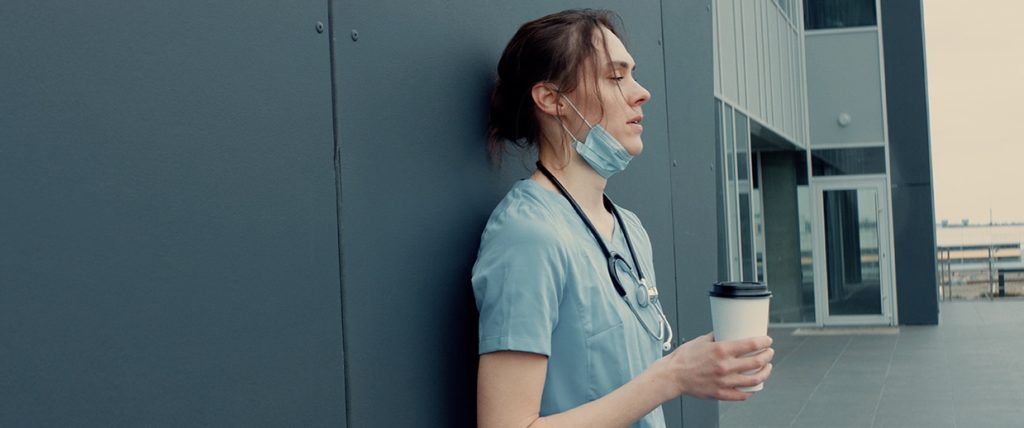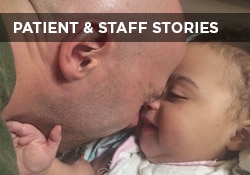This website uses cookies so that we can provide you with the best user experience possible. Cookie information is stored in your browser and performs functions such as recognising you when you return to our website and helping our team to understand which sections of the website you find most interesting and useful.

Susan E. Mazer, Ph.D. Blog
Thoughts and ideas on healthcare
Hi, and welcome to my blog! I'm Susan E. Mazer -- a knowledge expert and thought leader on how the environment of care impacts the patient experience. Topics I write about include safety, satisfaction, hospital noise, nursing, care at the bedside, and much more.
Nurse Burnout and the Patient Experience: After the COVID Crush
September 19, 2023
There is a post-pandemic of nurse burnout that shows up like a nursing shortage. It looks like millions of nurses who chose careers as skilled clinicians just walked away, or the younger generation, prior to starting nursing school, decided not to follow through. It looks like nurses are sick. However, given the circumstances that nurses enter into every day are increasingly unhealthy, stressful, and anxiety provoking, I suggest that the work in front of all of us is how to heal the care environment and provide our nurses with professional nourishment.
Nonetheless, the term “burnout” is far too generic to accurately address the challenges that lead a nurse to quit. What is more often the case, nurses leave the bedside because they cannot bear to continue.
Burnout is not boredom, but boredom could be symptomatic of burnout. Depersonalization is identified as part of burnout. This is experienced as a lack of empathy or compassion, a sense of being like a robot, going through the tasks and actions of nursing but not authentically being engaged with oneself or the patient being cared for. A kind of numbness to the practice of nursing itself.
Even before Covid-19, clinicians often worked under conditions countering their professional standards of care and caring. Often working in unsafe environments requiring them to be responsible for more patients than they could safely handle. Nurses had to manage seriously ill patients without enough ventilators, medication, and in many cases, not enough patient beds; there was not enough of anything.
The burnout rate was high even before Covid-19 started, with some estimates up to 40% for physicians and nurses. That rate has only increased.

Covid, Burnout, & The Environment
Recently the Hasting Center published an essay by Adrian Anzaldua and Jodi Halpern (2021), “Can Clinical Empathy Survive? Distress, Burnout, and Malignant Duty in the Age of Covid-19.” The authors carefully, and in detail, described the Covid environment and its impact on nurses and physicians in terms of ethics, professional commitment, inefficacy, and helplessness at the bedside.
Prior to developing vaccines and other medications for treatment, nurses and physicians watched helplessly as most of their patients died. It took over a year for the situation to improve. Those who were depleted of their own capacities for empathy and compassion struggled to rebound.
When “duty alone” is the motivator for engagement between nurse and patient, there is little reserve to feed resilience.
What is “Burnout”?
Burnout, a term thrown around much too easily, “manifests with symptoms of emotional and physical exhaustion, feelings of professional inefficacy and depersonalization, a sense of lost identity marked by feeling disconnected from one’s own thoughts and feelings.” These symptoms impact the long-term health of clinicians and the quality of care at the bedside. All of us (families, friends, neighbors) are affected to this day.
When patient safety is at risk, nurse burnout increases or accelerates. One of the main causes of burnout in nurses is an unsafe working environment. To a nurse, “unsafe” means having more patients to care for than they can effectively manage. Long hours, insufficient equipment (like PPEs), and a clear and shared risk among both patients and providers contribute to burnout and dissatisfaction.
The Humanity of Our Healthcare System
Anzaldua and Halpern identify the tearing apart of the very humanity of our healthcare system as it ignores the often potent but invisible needs of those who care for all of us. The process of “triage” forces choices that ask about patient needs, but not necessarily about the nurse’s needs. Remember, they are equal players in every hospitalization. What we expect and need from each nurse is not merely a “to-do list.”
Emotional presence is required to be empathetic; empathy can only be expressed when the individual has the internal freedom to do so. The pandemic offered neither freedom nor empathy. The oxygen needed to breathe caring into every patient has been taken up with panic and inadequate support.
Currently, Covid continues but is no longer immediately lethal. It feels like it is part of our collective past and present.
What we now have is the outcome of other neglected chronic conditions. Undiagnosed cancers, diabetes out of control, heart disease that knows no season. Now, add in social unrest, the epidemic of homelessness, food insecurity and we see ourselves in still another crisis.
Whether in a hospital room, emergency room, outpatient clinic, ordering a telehealth appointment, the immediate environments on both sides of the relationship become a third player in the interaction.
When we focus on the shared environment where care is delivered and received, there are immediate and clear tensions. For example, the nurse is in “working” mode; urgent, alert, caring for more than one patient who is demanding their attention. Conversely, the patient awaits care and needs human contact to feel safe and cared for. Further, the patient is sick enough to be in the hospital and has neither patience nor capacity. Environmental stressors, such as noise, crowding, lighting, clutter, and other people, are experienced according to the acuity of the individual. The patient (any patient) has limited coping skills and limited bandwidth to adapt to hostile factors. The nurse (every nurse) is driven by professional goals, but as a human being, may not have much more space beyond having to make zero errors in their tasks.
Caregiver & Care-Receiver
How can we support both the patient and nurse while acknowledging that their respective needs may compete? Everyone matters and the interdependence between caregiver and care-receiver is unyielding. More so, during Covid, patients had no support from family members. The nurses and physicians became “family” by proxy, having to provide physical and emotional support.
“Acting from duty is seldom necessary when workplace conditions permit the practice of clinical empathy, which provides professional motivation, meaning, and psychological protection. When clinical conditions do not permit the practice of clinical empathy, health care workers turn to their sense of obligation or duty to not abandon patients. Submitting to professional duty can protect some from psychological injury, for at least a while, but the chronic suppression of authentic reactions of outrage, fear, and grief that accompany submission to duty can further contribute to distress and burnout.”
I think about this every day. The “triage” process to determine whom to care for first, who has a chance of surviving, or who might die if we do not act, is the story of Covid-19 since starting in March 2020.
Empathy, altruism, and deep caring mitigates much of human suffering, regardless of who is in a health crisis. Today, being forgiving, generous, and offering both compassion and empathy is more needed than ever. However, the Covid environment has put all of us in need of intensive caring.
In over 3 decades of producing The C.A.R.E. Channel never has this environmental tool been more acknowledged and needed. We continue to hear from staff and patients almost daily, letting us know how The C.A.R.E. Channel supported their patients and staff. Creating a peaceful and healing environment by minimizing many of the environmental stressors that contribute to burnout.
Here are a few pieces of feedback we received during the pandemic:
“I was recently hospitalized with Covid-19 for several days. Normally don’t bother with TV because I just don’t normally expect to find anything worth watching, but I hadn’t brought reading material since I hadn’t expected to be admitted. And so, as I nudged the channel button up a couple of times, I was greeted by a majestic mountain scene along with beautiful, jazz-inflected piano music that perfectly complemented the visual. I immediately left the channel button alone and was able to mostly forget the unpleasant symptoms of the disease I was infected with. I was simply transported away from my suffering.”
“My wife was a patient. I stayed overnight with her. Covid is rampant and she was diagnosed with cancer. She has a great sense of humor. She will usually watch comedies. On this night she stopped at The C.A.R.E. Channel. It relaxed her, took her mind off the pain and discomfort and did not want to change the channel. We didn’t. Take care and stay safe.”
“I am in the hospital recovering from a bad Covid infection and the nurse recommended I try your program and relax at night to help fall asleep. I was totally impressed and surprised how effective it was.”










